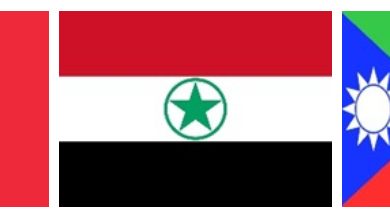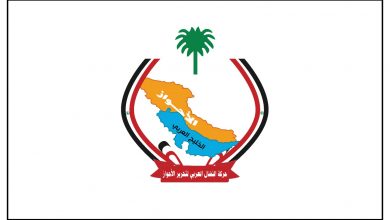#Ahwazna – Misery and poverty are the sole shares of Ahwazi Arab people in Samaneh village

"Ahwazna"
Samaneh village located in Desht Abbas rural district that its Ahwazi Arab inhabitants continue to suffer from too many privations hard to be counted. The village because of its proximity to Iraqi borders was inflicted severe loss and damage during Iran –Iraq war and many of its Arab people forced to relocate to other parts. The village has a notable number of man and woman who wounded during the war and its aftermath. The local says that the number of upper and lower limb amputees are increased in recent years due to the enormous existence of legacy of war primarily mine planted by Iran during the war. The government is not willing to turn its attention to their plight that is the unconditional necessity of removing the mines from their lands that are still surrounding the village. The widespread negligence in this rural area is clearly visible as same as other Ahwazi rural areas as it does not even have access to a paved road. The village like other neighboring rural areas is surrounded by flowing sand storms. Farming and animal husbandry are the only source of livelihoods of this people .But the existence of flowing sand dunes has made it harder than ever before for people to continue to work in farming and ranching. Ebrisam Chanani 80 years old is one of the elders of the village said, “Unfortunately we do not have a source of potable water. And all residents are at the mercy of water bringing by tank truck to the village every ten days”. “The village is quite far from the city center and our difficulties in travelling are not only because of long distance but also the condition of the road does not look good and it is too narrow and bumpy. In addition, lack of access to vehicles in many cases took us three days to transfer our ill family members to the hospital; at least in emergency cases we need to have access to an ambulance service”. Ferayeh Gharibi, One of the elders of Samaneh village, said “in the past few years, we have had no problems related to salinity of water or water shortages in the areas but the establishment of companies in the region has destroyed the irrigation system of our rural areas and now our drinking water is supplied by truck tanker. Sometimes we have to fetch long distance to bring back water to our village. He also complained that there are many oil companies around our rural areas but they do not employ the rural Arab young people and instead they are hiring non-indigenous labors coming from Isfahan, Yazd and other Persian provinces provided with full services and amenities. This is not acceptable they must enlist our local people on top priority for working in the oil companies these lands belong to us”. He said “at one time the living condition was superb in the village, but the long-term drought accompanied by influx of suffocating sand storms have caused the living situation to be extremely unbearable forcing us to stay at home as if we are under house arrest”. Faleh Hassani, a member of the village council, stated “the village has around 130 households with a population of over 180 people. We do not have health center, and we have to go to several miles to reach the only health center of Desht Abbas rural district which is closed at night”. He also claimed that “scorpion stings are very common in our rural areas and the mortality due to snake and scorpion stings is remained significantly high as a result of lack of access to medical facilities and long distance for transferring the patients”. Mrs. Neshideh Nasseri, an elderly woman with a sad tone said “I swear to God we are thirsty, and our whole village does not have drinking water and nobody pays attention to us. All I have is these sheep and two cows to support my four children”.  She also said, “regular power cut in the scorching summer season, shortage of drinking water and absence of medical facilities have combined leading at least 20 families to migrate to urban areas.” The Persian occupying state by practicing oppression, poverty, appropriating property and possession of Ahwazi Arab particularly through forcible confiscation of land has forced many of people to forced migration. This policy is pursuing in line with conducting ethnic cleansing of Ahwazi Arab people.
She also said, “regular power cut in the scorching summer season, shortage of drinking water and absence of medical facilities have combined leading at least 20 families to migrate to urban areas.” The Persian occupying state by practicing oppression, poverty, appropriating property and possession of Ahwazi Arab particularly through forcible confiscation of land has forced many of people to forced migration. This policy is pursuing in line with conducting ethnic cleansing of Ahwazi Arab people. 




